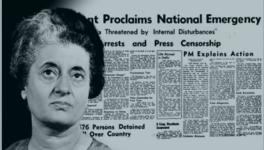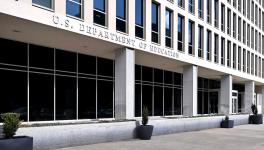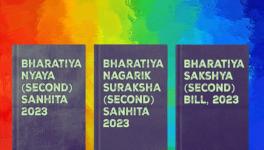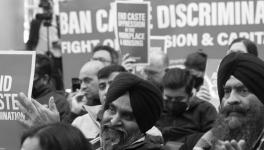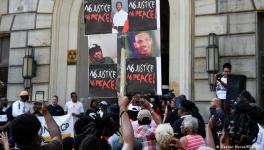India’s Decadent Criminal Justice System Cries for Reform
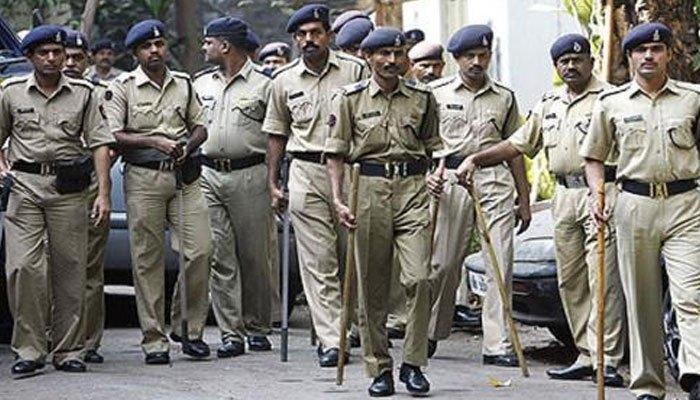
Representational Image
That the Indian criminal justice system, which consists basically of the courts, the police and the prisons, is in a deep crisis today is evident. The crisis of the police system was examined earlier by the present writer. More recently, experienced and senior members of the bar and bench, such as Sriram Panchu, senior advocate in the Madras High Court, Prashant Bhushan, eminent advocate-activist, and former Chief Justice of the Delhi High Court, AP Shah, have expressed their deep concern over the failure of the Supreme Court to deliver justice. Internal tensions within the highest echelons of the judiciary have led some judges to make charges against the Chief Justice of India (CJI). One judge asked the CJI to call a meeting of all judges to discuss government interference in judicial work. A section of Opposition parties also called for impeachment of the CJI in 2018.
“The best lack all conviction while the worst are full of passionate intensity” would be a good description of the current state of affairs in the higher judiciary. The system is in need of far-reaching reform, especially in the context of multiple patterns of social, political, communal and criminal terrorist violence in the country. The context is disturbing, given the increasing violence on all fronts, especially against women and minorities.
Minority rights and the Constitution
India’s Constitution recognises six religious and linguistic minorities, the Muslims, Sikhs, Christians, Jains, Zoroastrians and Buddhists. Further, the criminal justice system is meant to protect all citizens. A Minorities Commission has been set up to protect the interests and legal rights of minorities. The Union Ministry of Home Affairs protects recognised minorities. India’s Constitution, however, fails to take note of the rights of hundreds of “national and ethnic” minorities in the North-east states. The recommendations of the Justice VS Malimath Committee, 2003, on reforming the criminal justice system have not been implemented.
Unpunished violations
The massive crimes and violence against the Sikhs in 1984 went unpunished, as did demolition of the Babri Masjid in 1992, the massive communal violence in Mumbai in 1993, the organised anti-minority violence in Gujarat in 2002, the widespread violence against Christians in 2008 in Odisha and the persistent violence against ethnic minorities in the North-east.
After 2014, crimes against minorities including Christians and Muslims have increased, while since July 2016, massive state violence, crimes and extrajudicial executions are being carried out against Muslims in Kashmir. India blames Pakistan for the violence but Kashmiri leaders say the problem is internal.
Police facilitation
About 500 hate crimes are said to have taken place in India since 2015. The killing of Mohammad Aqhlaq was followed by moral policing on women in the name of “love jihad”. Over 65 dissenting intellectuals, rationalists and rights activists have been killed. There has also been pervasive violence against Dalits since 2014. A crime is committed on a Dalit every 15 minutes; a Dalit woman is raped every six minutes. Crimes against Dalits spiked 66% in the decade from 2007 to 2017. More than 80% of these crimes go unpunished, given the loopholes and failures of the criminal justice system.
In Manipur, more than 200 extrajudicial executions took place every year in the 2000s. The former Director General of Police, Manipur, accountable for these killings, was appointed as the deputy Chief Minister of the state. Judicial intervention in these cases amounts to too little too late and the criminal justice system seems to have collapsed completely. State violence by the Assam Rifles in Manipur against the 16-year (5 November 2000 to 9 August 2016) hunger strike of Irom Sharmila, demanding the repeal of the draconian Armed Forces (Special Powers) Act, 1958, was ignored. The Act persists.
In Gujarat in 2002, the police violated legal norms and procedures of investigation. It registered partisan FIRs. A Citizens’ Tribunal chaired by three eminent judges examined the violence and submitted a three-volume report. The tribunal received over 2,000 affidavits from victims of violence and noted that the state police failed to arrest perpetrators of the violence and instead arrested the victims. The police had delayed the imposition of curfew, neglected criminal law under political influence, failed to collect intelligence, participated in the violence, filed omnibus FIRs, neglected identification parades, held malicious “combing operations” in areas where members of the minority community live, ignored the rape victims, allowed criminal mobs to have their way, ignored the recommendations of the NHRC and failed to follow laid-down central government instructions. Similar events had taken place in 1984 and 2008 in Delhi and in Kandhamal, Odisha.
The 2017, the police committed serious irregularities in the Pehlu Khan murder case, including delay in registering an FIR, withholding the identity of police witnesses to the crime, minimising the charge of murder to culpable homicide, collecting motivated evidence to let off culprits and distorting medical evidence.
Justice Rajinder Sachar Committee Report, 2005
Muslims, the Sachar report said, are seen as “anti-nationals”, but are simultaneously pampered. The police are high-handed, and the state partial. Every bearded man is seen as an ISI agent, fake encounter killings take place. Minorities, it said, were subjected to ghettoisation and collectively alienated. Further, the police are known to illegally barge into homes where Muslims live, and there are inadequate schools and hospitals in areas where Muslims reside. It also noted the immense fear of police among Muslims, accompanied with poor representation of members of the community on the force.
Police inaction or connivance in crimes and violence is in fact pervasive across the country. Police officers say the force should deal with criminal violence only, not social violence, and that social justice is not its concern.
Naxalites and Uttar Pradesh Police
When I joined the Union Home Ministry as Director of the Civil Rights Cell in the late 1970s, I enthusiastically travelled across the country to check on the protection of civil rights of the Scheduled Castes and Scheduled Tribes under the new law on the subject. I came to be known among ministry personnel as the “Naxalite DIG”! My clarification, that I was only trying to get the new law on civil rights implemented, did not change their view.
In another instance, I was to prepare a response to a Parliament question on how many atrocities had taken place against the SCs in Uttar Pradesh in 1982. “Atrocity” implies a cognisable offence committed on a member of a Scheduled Caste by a non-Scheduled Caste person. The state government provided the information that only one “atrocity” had taken place in the year, though the figure that had already been reported to the central government through routine channels was over 3,000 such cases. The state government clarified that only one case had taken place in which the “anti-SC caste sentiment” had been noted. All other cases were “socio-economic” and, according to it, unrelated to caste.
In the early 1980s, there was an uproar in Parliament over rural violence central Bihar that was being attributed to Naxalites. Then Prime Minister Indira Gandhi sent a central team led by Manmohan Singh, a Member Secretary in the Planning Commission at the time, to visit the area and file a report. I was a member of the team, which found that contrary to police reports that only 12 people had been killed, 59 peasants had been killed, and that too, in police encounters, not by Naxals.
National Policy on Naxalism
In 2006, the Planning Commission met at an official conference of all chief ministers and police chiefs chaired by the Prime Minister. The aim was to evolve a national policy on Naxalite violence. An Expert Group of the Planning Commission reported that the violence in question was related to development. But the Intelligence Bureau maintained that Naxalite violence was the “biggest internal security threat” to India. The IB’s report was accepted and the Planning Commission’s report was sidelined. The new government since 2014 has continued the previous police policy on Naxalites.
Indian Police: British View
The British had a poor opinion of India’s police system. They regarded it as a government department and not a “service”. The two police commissions set up in 1861 and 1902 did not create a people-oriented police system but only served to brutalise the force further. The British regarded Indian police as “all but useless in the prevention and sadly inefficient in the detection of crime; unscrupulous in the exercise of authority with a generalised reputation for corruption and oppression”.
In 1983, David Bayley, a scholar of police systems, noted that the Indian police are “preoccupied with politics, penetrated by politics and participated in it individually and collectively”. The NHRC has also found that the police were involved in 60% of all arrests and that it is responsible for 75% of complaints of human rights violation.
The Indian Penal Code, 1860, the Criminal Procedure Code, 1973 (CrPC), and the Police Act, 1861, are mainly devoted to offences against the state and not individual criminality, which runs contrary to the Constitution, which prioritises individual security. The first 299 sections of the IPC are devoted to state security, public order, criminal conspiracy, sedition and so on. Investigation of crimes against the body [persons] and property begins only from section 300. A similar bias informs the CrPC and the Police Act.
Several commissions and committees have been set up to reform the police. The Supreme Court guidelines of 2006, were “superstructural” and not “infrastructural” in nature, as noted by the eminent professor of law Upendra Baxi. The paramilitary character and structure of the Indian police has remained unchanged even after Independence. Note that even the civilian police have a paramilitary structure, not just the regular paramilitary police such as the CRPF and the BSF. The intelligence organisation has remained colonial and lacks a framework and charter of duties.
Related Trends
The Parliament and the Supreme Court of India are only getting weaker today. They play a declining role in delivering justice. In 2017, Parliament met only for 57 days. The Parliament in the United Kingdom and the United States House of Representatives have met for 140 to 150 days every year.
The Speaker of the Lok Sabha has refused to take up two No-Confidence Motions on grounds of “lack of order” in the House. Under the rules, such a motion has to be taken up immediately when received by the Speaker. In 2017, only nine out of 72 bills were referred to Parliamentary committees. From 2017 onward, the Railway Budget has been merged with the Union Budget, an unprecedented and sudden move. The Union Budget was passed in half an hour without discussion. The Parliament Secretariat has been weakened by the practice of appointing serving bureaucrats who obey the executive.
The Lok Sabha failed to meet for 16 consecutive days during the Budget Session in 2017 on account of state-specific demands. The government could have taken up these demands separately. The Aadhaar and Foreign Contribution (Regulation) Act or FCRA Amendment Bills were passed as Finance Bills, contrary to rules and conventions. Parliament has failed to discuss the serious agrarian crisis in the country.
Suggestions
The paramilitary structure of the Indian police must change and the police should be accountable to Panchayati Raj Institutions (PRIs) at the grass-roots. The IAS and IPS must be made accountable to the PRIs. The Second Administrative Reforms Commission (2005-2007) report, which deals with “public order”, must be implemented. Judicial reforms must include a full-time judicial appointments commission, which is independent of both government and the judiciary. There must be an independent judicial complaints commission and no post-retirement jobs should be given to members of the higher judiciary and civil services.
Get the latest reports & analysis with people's perspective on Protests, movements & deep analytical videos, discussions of the current affairs in your Telegram app. Subscribe to NewsClick's Telegram channel & get Real-Time updates on stories, as they get published on our website.










